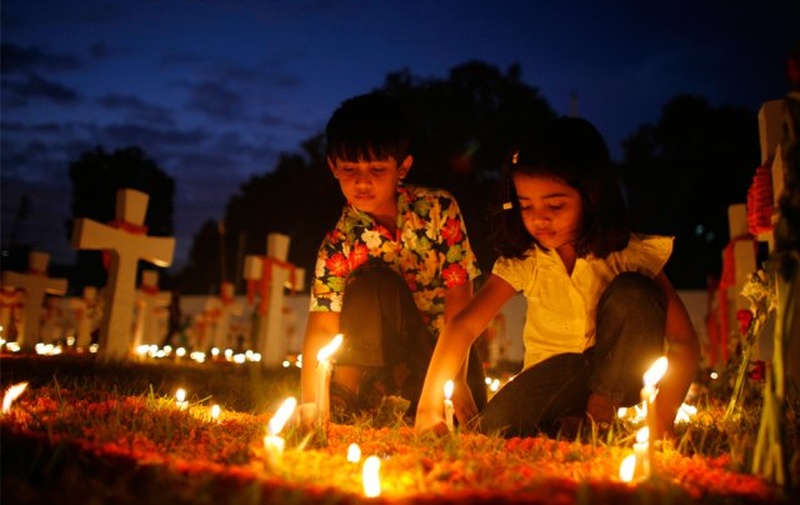All Souls' Day
As you would be aware, Halloween was celebrated by many in Australia last Saturday evening. In the Catholic Church, this is close to the time we remember and pray for those who have died. Monday 2 November was All Souls’ Day when Catholics are urged to pray for the souls of their fellow believers who have died, to help them be cleansed of their past sins that prevent them from getting to heaven.

Remembering the dead has been a practice throughout Christian history and All Souls’ Day is considered a Holy day. In countries such as the Philippines and Mexico there are 2-3 days of holidays related to remembering and praying for the dead. In the Philippines, this day is observed as part of a two day public holiday called Undas which also incorporates All Saints’ Day falling on 1 November. Each year, people in the Philippines flock to their family plots in cemeteries across the country. They also use this holiday to hold a family reunion where groups of an extended family gather together.
The day is filled with music and food. There is also prayer and religious traditions. At the end of the day, people will often camp overnight in the cemetery to pay their respects to their dead relatives. Visitors remark that Filipinos are remarkably at home among their dead ancestors.
Filipinos are known for having great respect for their dead. To prepare for Undas, families will visit the graves of their ancestors before the holiday to clean up the area and perform maintenance. During the holiday, people will decorate the graves with flowers and candles. The cemeteries will come alive during this period.
In addition to these traditions, other Catholic traditions are also observed. Many cemeteries will hold a special mass during the day. The rest of the day is often marked by periods of prayer and the recitation of the Litany for the Dead.
This holiday is a mix of the observance of the dead and a joyful holiday. Families bring plenty of food and drink for their dead relatives. Some believe that the deceased are taking part in the feast alongside the living. While most bring food directly to the cemetery, other families will also leave food at home on altars for any relatives who aren’t buried in the cemetery.
While in the United States of America it was observed that All Souls’ Day would be even more significant this year due to the many thousands of Catholics who have lost loved ones due to the pandemic and they have not been able to properly farewell or remember them.
In Year 9 Religious Studies, the students will learn about the significance of these events and the importance of remembering and praying for the dead. The students view Coco, an animation about the Mexican practices of this kind. They will then work through some activities that encourage this prayer and reflection in the Catholic tradition. Our sacred text, the Bible, will be consulted and analysed. One such extract is that from the Old Testament book of Sirach(Chapter 38: 16-23) on “Mourning the Dead”. It reads as follows:
My son, let your tears fall for the dead,
and as one who is suffering grievously begin the lament.
Lay out his body with the honour due him,
and do not neglect his burial.
Let your weeping be bitter and your wailing fervent;
observe the mourning according to his merit,
for one day, or two, to avoid criticism;
then be comforted for your sorrow.
For sorrow results in death,
and sorrow of heart saps one’s strength.
In calamity sorrow continues,
and the life of the poor man weighs down his heart.
Do not give your heart to sorrow;
drive it away, remembering the end of life.
Do not forget, there is no coming back;
you do the dead no good, and you injure yourself.
“Remember my doom, for yours is like it:
yesterday it was mine, and today it is yours.”
When the dead is at rest, let his remembrance cease,
and be comforted for him when his spirit has departed.
Louise East - Religious Studies Coordinator.